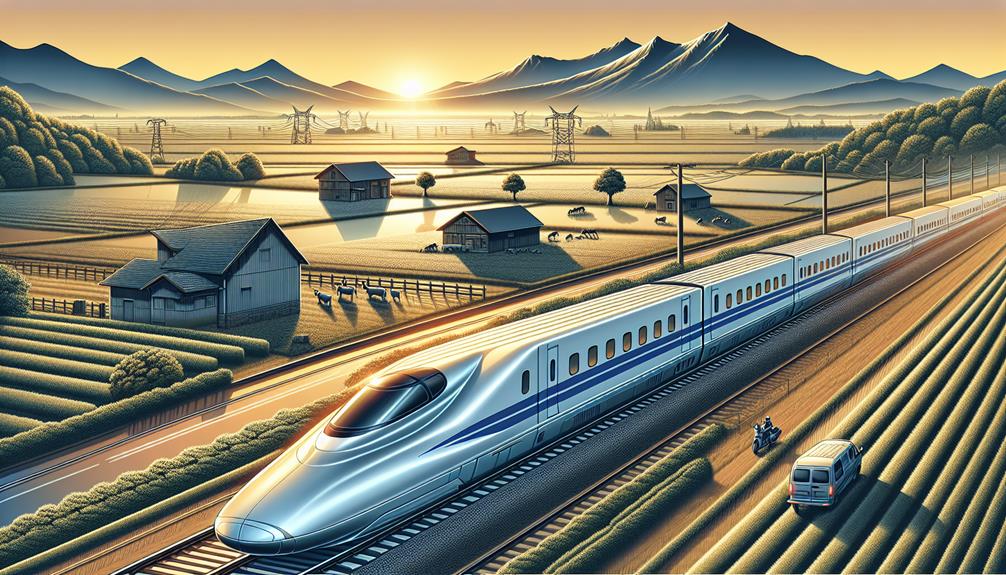As you explore George Orwell’s ‘1984,’ you’ll uncover layers of complexity within its stark depiction of totalitarianism and surveillance. The chilling resonance of Orwell’s dystopia, constructed in the aftermath of World War II, offers both a mirror and a warning to contemporary society. By examining how Orwell weaves psychological manipulation and omnipresent government oversight into the fabric of the narrative, you’ll begin to appreciate not only the historical context but also its prophetic insights into modern issues of privacy and freedom. This exploration may lead you to question how much of your world parallels the ominous world of Winston and Big Brother. What might this suggest about our future?
Overview of 1984
George Orwell’s ‘1984’ presents a dystopian narrative that remains hauntingly relevant, particularly in our current era of heightened surveillance and political unrest. The novel intricately weaves together themes of surveillance, totalitarianism, and the manipulation of truth, which reflect Orwell’s own experiences with oppressive regimes and the impact of World War II on his worldview.
Orwell’s time spent fighting in the Spanish Civil War profoundly shaped his perspective on authoritarianism, leading him to create a narrative that warns of the dangers posed by unchecked governmental power. This background provides a unique lens through which to interpret the oppressive atmosphere of ‘1984’, particularly the omnipresent surveillance that echoes today’s discussions about privacy in the digital age.
- Surveillance: The concept of ‘Big Brother’ serves as a stark reminder of the consequences of pervasive monitoring, a theme that resonates with modern debates around social media data collection and state surveillance programs.
- Totalitarianism: Orwell illustrates a society stripped of personal freedoms, illustrating the extreme measures taken by a government to maintain control. This theme has re-emerged in contemporary political discourse, where authoritarian practices are increasingly scrutinized.
- Manipulation of Truth: The novel explores how language and information can be weaponized to shape reality. With the rise of misinformation and ‘fake news’, this theme is more pertinent than ever, prompting readers to question the authenticity of the information they consume.
In analyzing characters like Winston Smith and Julia, readers gain insight into the struggle for personal autonomy within a repressive regime. Winston’s journey highlights the internal conflict faced by individuals in a society where dissent is punishable. Julia, on the other hand, represents a more pragmatic approach to rebellion, revealing the varied responses to oppression.
Additionally, Julia’s interactions with the proletariat serve to illustrate the complex social dynamics at play within Orwell’s world. Her understanding of the proletariat as a potential force for change contrasts sharply with Winston’s despair, enriching the narrative by showcasing differing perspectives on resistance and survival.
Ultimately, ‘1984’ serves not only as a cautionary tale but also as a profound commentary on the human condition, urging readers to reflect on the nature of freedom, identity, and the power dynamics that shape our societies.
Analysis of 1984 Articles
As you examine the impact of *1984* on literature and society, consider how Orwell’s dystopian vision hasn’t only influenced subsequent genres but also mirrored historical and cultural anxieties.
Then, when comparing it to modern dystopian literature, you’ll notice thematic continuities and evolutions that reflect changing societal fears.
This analysis underscores the enduring relevance of Orwell’s work in understanding the dynamics between power, society, and individual autonomy.
Impact of 1984 on Literature and Society
George Orwell’s 1984 has profoundly influenced both literature and societal norms, challenging you to scrutinize the pervasive impact of totalitarianism. The novel’s dark vision of a government that manipulates truth and history has had a chilling echo in real-world politics, influencing how you understand and discuss civil liberties and surveillance.
Scholars argue that its vocabulary—words like ‘Big Brother,’ ‘doublethink,’ and ‘thoughtcrime‘—has seeped into common usage, crystallizing fears about government overreach into a significant, accessible language.
Your comprehension of privacy issues, particularly in the digital age, is steeped in Orwellian dread. The novel’s portrayal of ceaseless surveillance anticipates your anxieties about data privacy and personal freedom, fostering a critical stance toward the technologies you use daily.
In literature, 1984 has become a touchstone for dystopian narratives, shaping how authors depict oppressive regimes and disempowered citizens. It compels writers to explore the complexities of power and control, embedding these themes into the fabric of modern storytelling.
The societal discourse around truth and misinformation also bears Orwell’s imprint. You’re equipped with a framework to analyze propaganda, recognizing its potential to distort reality and suppress dissent. Therefore, 1984 remains an essential lens through which you view both contemporary literature and societal dynamics, underscoring the enduring relevance of Orwell’s cautionary tale.
Comparison with Modern Dystopian Literature
When comparing *1984* to contemporary dystopian literature, you’ll notice that Orwell’s predictions about surveillance and authoritarianism continue to resonate deeply in new works. Modern authors often reflect and expand on these themes, showing that the cautionary tales of Orwell aren’t just relics of the past but are eerily relevant today.
Here’s a look at how these themes manifest in recent literature:
- Surveillance State: In *The Circle* by Dave Eggers, you see a society where technology companies monitor every aspect of life, echoing Orwell’s Big Brother.
- Loss of Individuality: Similar to Winston’s struggle in *1984*, the characters in *Divergent* by Veronica Roth are sorted into predefined roles, stripping them of personal choice and freedom.
- Language as Control: *The Giver* by Lois Lowry demonstrates how language can be manipulated to suppress freedom of thought, mirroring *1984*’s Newspeak.
- Governmental Overreach: *The Hunger Games* by Suzanne Collins highlights the extremes of governmental control as a method of oppression, akin to the Party’s rule in Orwell’s universe.
- Public Manipulation: *Little Brother* by Cory Doctorow explores the theme of using technology for public manipulation, a modern twist on Orwell’s propaganda techniques.
These echoes in literature serve as a validation of Orwell’s profound understanding of power and its abuses, proving that his dystopian vision remains a potent lens for examining our own world.
Scholarly Perspective on 1984
As you explore the scholarly perspective on George Orwell’s ‘1984,’ you must consider the historical context in which it was published. This context illuminates how Orwell’s experiences and the political climates of his time shaped his dystopian vision.
Additionally, examining the influence of his works reveals their enduring relevance in contemporary discussions on surveillance, freedom, and authoritarianism.
Historical Context of 1984 Publication
You must consider how the initial reception by critics and scholars of George Orwell’s *1984* reflected the political and social anxieties of the era.
As you examine these scholarly interpretations, note how they underscore the novel’s exploration of totalitarianism, which resonated deeply with the contemporaneous fears of unchecked government power.
This context not only shaped the novel’s immediate impact but also influenced its enduring relevance in academic and critical discourse.
Reception by Critics and Scholars
Critics often regard George Orwell’s 1984, published in 1949, as a prescient reflection of totalitarian regimes, deeply rooted in the anxieties of its time.
- Historical Parallels: Reflects post-WWII fears.
- Totalitarianism: Exposes the mechanisms of oppressive governance.
- Propaganda Analysis: Examines the pervasive use of misinformation.
- Psychological Manipulation: Highlights control over individual thoughts.
- Enduring Relevance: Continues to resonate in contemporary discussions on surveillance and freedom.
Influence of George Orwell’s Works
You’ve likely noted that George Orwell’s *1984* extends its reach far beyond mere literary critique to assert a lasting influence on political thought.
This work not only forecasts the pervasive surveillance and authoritarianism that echo in today’s political landscapes but also serves as an essential framework for interpreting the manipulative use of language in politics.
Legacy in Political Thought
George Orwell’s 1984 has profoundly shaped political thought by offering a prescient warning about the dangers of totalitarianism.
You can see its impact through:
- Surveillance debates: Its foresight on state surveillance resonates in modern privacy discussions.
- Political language: It’s critiqued how language can manipulate truth.
- Authoritarianism studies: Scholars reference it when examining despotic regimes.
- Cultural references: Frequently cited in political discourse.
- Educational curriculum: Integral in teaching political theory.
Exploring 1984 Newspaper Articles
As you examine the media coverage of 1984, you’ll notice that the themes Orwell explored resonated differently across various decades.
This varying reception highlights how public sentiment shifted in response to political and social changes.
Analyzing these newspaper articles provides critical insights into the enduring relevance and interpretation of Orwell’s work.
Media Coverage of 1984 Themes
Numerous newspaper articles from 1984 critically examine the pervasive themes of surveillance and control, mirroring Orwell’s dystopian vision. You might find it intriguing how these articles not only reflect on Orwell’s fictional constructs but also delve into their tangible manifestations in society at the time.
Consider how the media then explored these themes:
- Technological Proliferation:
Articles frequently discussed the rapid development of technology and its potential for both empowerment and oppression.
- Government Oversight:
Many pieces critically analyzed the extent of government surveillance, drawing direct parallels to the omnipresent authority in Orwell’s novel.
- Public Privacy Concerns:
Journalists voiced growing concerns about the erosion of personal privacy, a core issue in ‘1984.’
- Use of Propaganda:
Exploration of media’s role in shaping public opinion and its resemblance to Orwellian propaganda techniques.
- Legal and Ethical Debates:
In-depth discussions on the balance between national security and individual rights were common, highlighting the ethical dilemmas faced by modern societies.
These articles serve as a reflection of Orwell’s prescient vision. They also remind you of the ongoing relevance of his warnings about the powers of surveillance and control in a democratic society. Analyzing them helps you appreciate the complex interplay between literature and real-world issues, underscoring the enduring influence of Orwell’s work.
Public Reaction to 1984 in Different Decades
Public reaction to Orwell’s ‘1984’ has varied considerably across different decades, as evidenced by an assortment of newspaper articles that capture shifting societal concerns and the evolving interpretation of its themes. In the 1950s, you’d notice a focus on the novel as a critique of totalitarian regimes, mirroring the anxieties of the Cold War era. Newspapers from this period often highlighted Orwell’s prophetic warnings against the backdrop of Soviet expansionism.
As you explore into the 1970s and 1980s, the commentary shifts. With technological advances, newspapers began to discuss the novel’s insights into surveillance and personal privacy. The rise of computers and the onset of the Information Age led to articles that drew parallels between Orwell’s Big Brother and emerging governmental and corporate data collection practices.
Entering the 21st century, the focus in newspaper discourse has often been on the novel’s relevance in the context of global terrorism, internet censorship, and the debate over national security versus individual freedoms. Each article serves as a mirror, reflecting contemporary societal fears and interpreting Orwell’s work through the lens of current events.
As you explore these articles, you’re witnessing the dynamic interplay between a literary classic and the ever-changing political landscapes it continues to influence.




